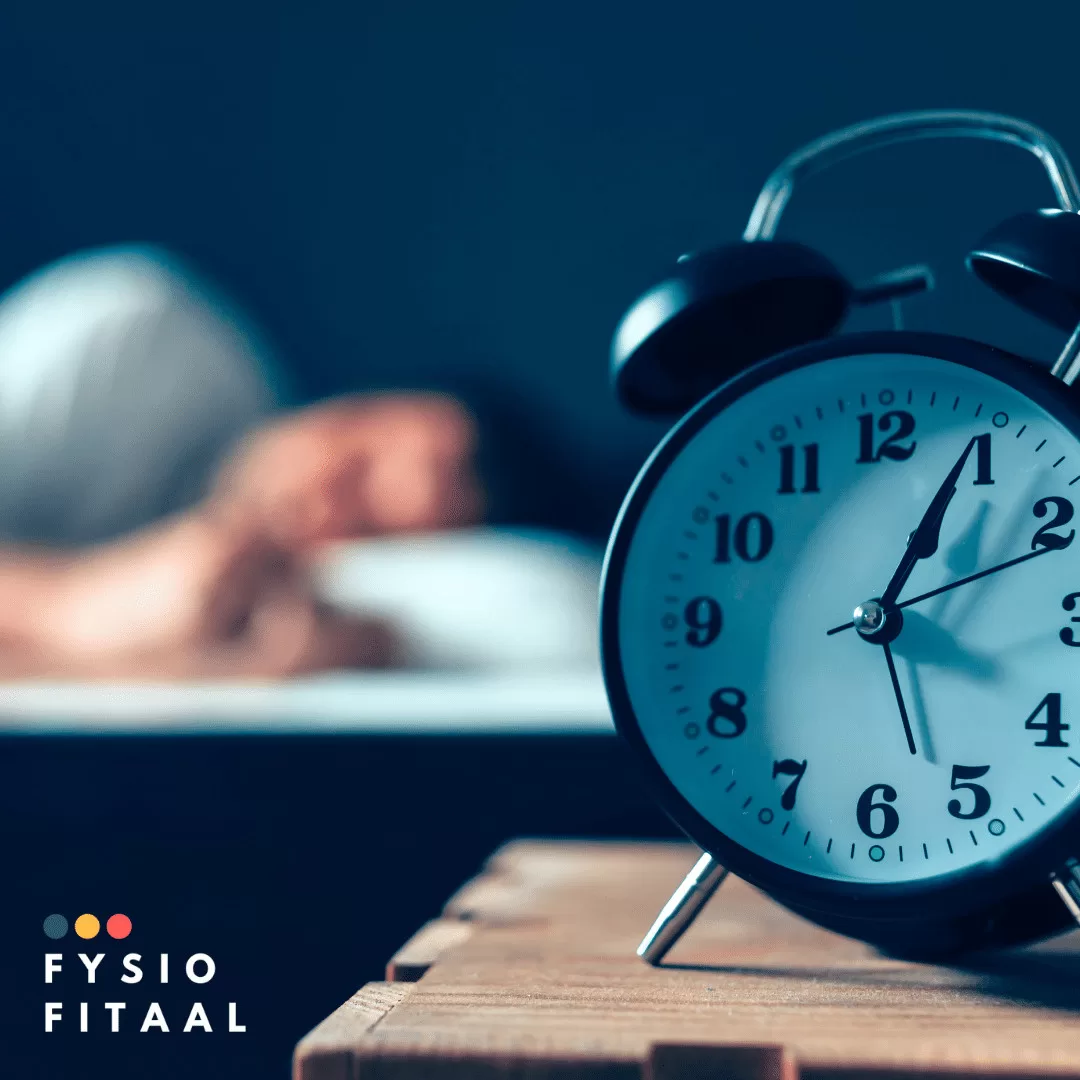Sleep & work performance
You've probably experienced it. Those days where you doubt you're going to make it through the day after a bad night. Sleep deprivation seriously affects the quality, effectiveness and creativity of your work. And when you are in charge, your colleagues' sleep deprivation can make sure that nothing at all comes of your well-intentioned ideas. People who are structurally sleep-deprived are also more difficult to manage. It is then difficult to create commitment and focus.

A working day requires a lot of energy from your body and brain, and a good night's sleep is the only way to provide you with that energy. Just think what an average working day requires of you:
- You need to be able to maintain focus, solve problems, make decisions and remember important information.
- You have to collaborate with colleagues and consider different personalities.
- You need to perform at customer calls or meetings.
- You also need to be able to perform physically at times.
For all these skills, sleep is essential. Not just in quantity but certainly quality. Simply put the better you sleep the better and happier you can do your job.
You yourself probably won't notice the difference between 6 or 8 hours of sleep but your brain most certainly will!
Sleep deprivation among the population is common. Almost ⅓ of the Dutch population does not sleep enough for optimal physical as well as physical health. For this reason, sleep deprivation has also been officially labelled a health problem for several years.
The definition insomnia is described as: poor sleep in and/or through at least three times a week accompanied by worse daytime functioning.
The first step to solving a problem is understanding what you are dealing with. Using . examples, we will show you how sleep affects your working day.
Cognitive skills
Cognition is the ability to plan, learn, reason and solve problems. Every time you find yourself in a situation that is new to you, your cognition goes to work for you. One of the most commonly used cognitive skill is the ability to keep your attention on something. When you are rested you notice that your focus is often better than when you have slept badly. Your attention then often goes in all directions and focusing on your work proves to be very difficult. You probably recognise this and are more likely to pull out your phone or simply let your mind wander. Towards your colleagues, this can make it seem as if you are not interested or focused. While this is precisely not your intention.
Problem-solving ability
Sleep deprivation prevents your rational brain from functioning properly. This makes it a lot more likely to make poor choices. This can make it harder to set realistic goals, plan well and assess possible risks. When your work becomes more complex and when your choices affect the work of your colleagues, sufficient sleep is necessary to take all these factors into account and make the right choices.
Creativity
Your REM sleep is the phase of sleep where your brain is most active and you can dream vividly, for example. This phase is apparently essential for your daily dose of creativity. You can almost put it this way that people come up with all kinds of creative solutions to their daily problems in their sleep. So if you want to burst with creativity during the day, at least make sure you get enough sleep!
Mood
Without the necessary sleep, your mood is often not too good. People with sleep deprivation are many times more prone to mood swings and even depressive feelings. This can cause serious mental problems in the long run. At work, this can manifest itself in a snarl towards your colleague or an anger outburst over basically nothing at all. After a good night's sleep, you are much better able to react appropriately to different situations. You are much more likely to give colleagues the benefit of the doubt instead of going over the top. This is much better for the working atmosphere in the long run.
Empathy
Sleep deprivation affects your ability to recognise what other people may be feeling or going through. So it makes you less empathetic. Emotional literacy is an important skill at work. If you continue to exhibit more frequent non-socially desirable behaviour in the workplace, it will not benefit interpersonal relationships with your colleagues and ultimately your job satisfaction. When you do not recognise signals from people around you quickly enough, it becomes more difficult for you to chair a meeting, manage your team or close an important deal. Think about performance interviews that can go completely wrong if you don't recognise the right signals in time.
Physical influence
Poor sleep has quite an impact on your body, especially after several nights in a row. You start getting sleep at times when you should actually be fully engaged in your work. For instance, when you also have to physically work with heavy machinery, your judgement and responsiveness have to be on top of the game to avoid accidents. Serious sleep deprivation has the same effect on our bodies as alcohol. Research shows that when people had not slept for 17 hours, reaction capacity equals a blood alcohol percentage of 0.05%. After 24 hours, this percentage is even 0.1% which is equivalent to being drunk. So sleep deprivation affects your performance during the day on many different levels.
So how do you sleep better?
Now that you have a better understanding of how sleep can potentially affect your work performance, we give some tips in how to sleep more efficiently.
- RESPECT your sleep. It is more than just a few hours of recovery. It is a vital part of your health. Just as important as diet and physical exercise.
- Create an ideal sleeping environment. A nice bed, dark room and cool room(18 degrees celcius seems the ideal temperature) provide the right conditions.
- Make a habit of the times you go to bed and wake up again.
- Before bed, therefore, choose activities that calm your brain. Your phone, TV or laptop certainly won't do that. Reading, showering or taking a bath do. You can also opt for some relaxation exercises or a short walk outside.
- Alcohol has a negative effect on your sleep quality. Even that one glass a day.
- Stop drinking coffee (caffeine) in time. Caffeine takes about 8 hours to fully wear off. So after 2 p.m. preferably no more coffee.
- Keep in mind how many hours you want to sleep. When doing so, also allow for 15 minutes in sleep time. 7-9 hours is recommended for adults. If you exercise intensively then you are really heading towards 9 hours.
- If you really can't sleep, just get out of bed for 15 minutes and do something else. If you stay awake in bed, the brain does not associate the bed with anything relaxing. If this happens often enough, it will become increasingly difficult to relax in bed.
Sleeping better doesn't have to be so difficult. See if you can start applying some of these tips and notice the difference in energy! Real sleep problems are often not properly recognised and often remain untreated for this reason. If you suffer from this structurally, it can't hurt to discuss this with your GP, for instance. Sleep apnoea is often attributed to obesity. This can play a role, but obesity is never the only reason for sleep problems. Besides a varied diet and sufficient exercise, sleeping better is also important for your health. People have to go to bed sometime anyway. So our advice is to set this up as well as possible for better performance at work but, above all, for your own state of mind!

